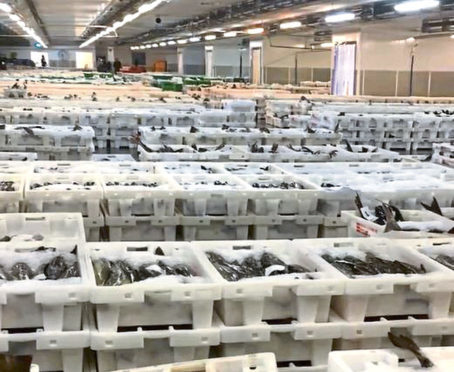A north-east seafood boss has urged MPs to give “serious consideration” to the industry’s workforce needs after Brexit.
Ryan Scatterty, managing director of Boddam-based Thistle Seafoods, highlighted a looming jobs threat for the sector after the UK quits the European Union.
Many of the people currently employed in Scottish processing factories are migrants, whose future right to work in the UK is in doubt.
Giving evidence to the Scottish affairs committee at Westminister yesterday, with the proposed Fisheries Bill under scrutiny, Mr Scatterty said the much vaunted “sea of opportunity” for the catch sector after Brexit would be no use to processors if they did not have enough workers.
North-east factories were already struggling to recruit people because of the area’s relatively low unemployment and competition from the oil and gas industry, he said.
He added: “Seafood processing is not seen as a sexy job. People want to be working offshore.
“We could (after Brexit) have all the fish in the world but nobody to process it.”
Mr Scatterty also highlighted industry concerns about exports in the event of a hard, “no deal” exit from the EU.
Fast-growing global demand for fish and other seafood offered plenty of scope for exports longer term, he said.
But much of the fresh seafood exported from the north-east goes into the EU and a Brexit transition agreement on trade is vital for the firms processing it, he added.
He warned: “A hard no deal, with us potentially crashing out, will cause major problems.”
Also giving evidence was Scottish Fishermen’s Federation chief executive Bertie Armstrong, who underlined the potential size of the bounty for the catch sector after the UK becomes an independent coastal state.
The Fisheries Bill is “enabling legislation” to unlock massive potential, Mr Armstrong said, adding: “There was a study last June by the Scottish Government. It estimated a realistic figure would be an additional £500million to the Scottish industry and 5,000 jobs.
“That is the order of potential benefits. We would like to see that potential embraced.”
